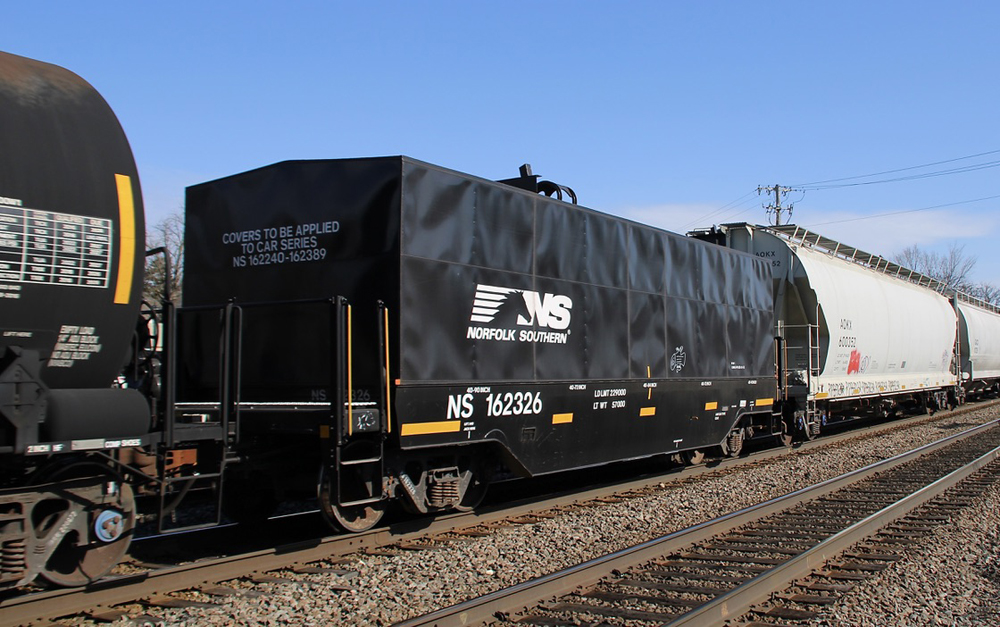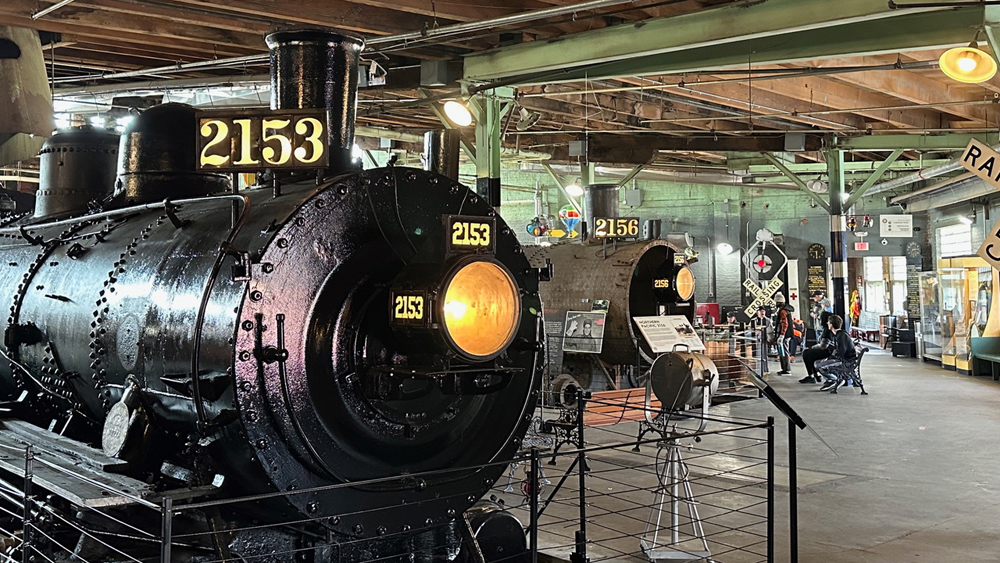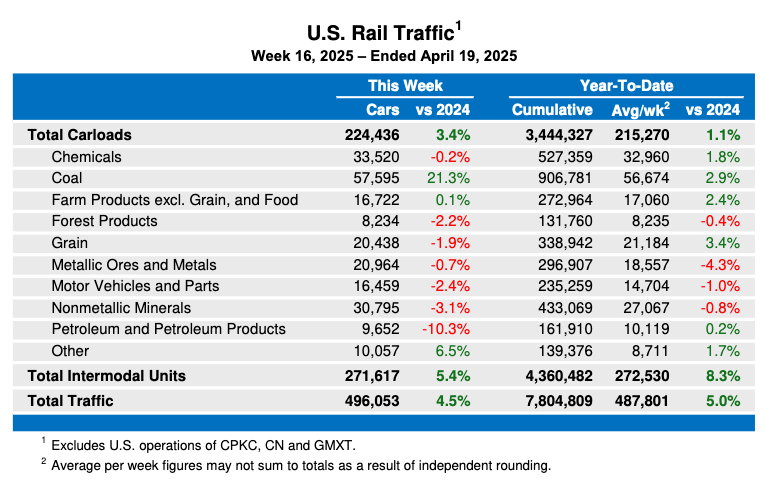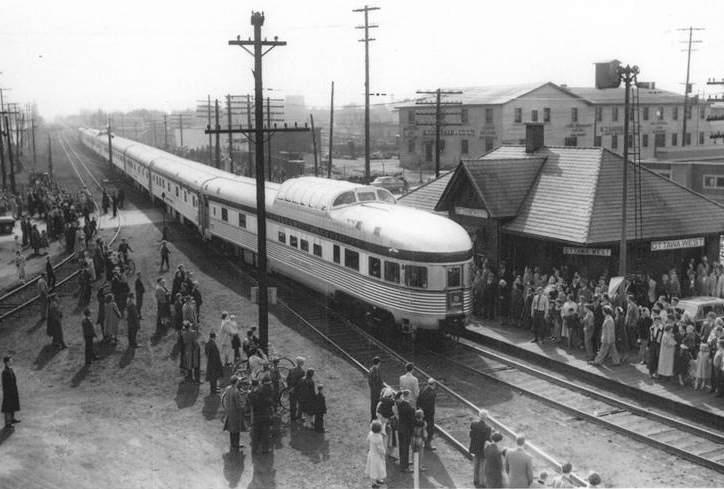
WASHINGTON — The Federal Railroad Administration has issued a new final rule on freight car safety standards including limitations on cars or parts from China or another “country of concern.”
The rule, released Thursday, Dec. 19 and effective Jan. 21, 2025, fulfils a requirement of the Infrastructure Investment and Jobs Act.
The rule requires railcars to be manufactured or assembled in “a qualified facility by a qualified manufacturer.” In addition to limiting components from countries of concern or state-owned enterprises in such countries, it bars essential components or sensitive technology from such countries and enterprises. Penalties include prohibiting manufacturers from supply freight cars for U.S. use.
“By enforcing stringent controls on where freight car technology and materials originate, this rule aims to minimize risks related to compromised security, ensuring that U.S. rail remains safe and reliable,” FRA Administrator Amit Bose said in a press release.
The Rail Security Alliance, a coalition of U.S. railcar manufacturers, suppliers, and unions, praised the new rule. The group’s executive director, Erik Olson, said in a press release that the rule “makes our freight rail interchange safer.” Olson also said the RSA looks forward to “working with the incoming Trump Administration to ensure this regulation remains intact to prevent Chinese incursion into the freight rail interchange.”














Back in the day, I was a Senior buyer for an auto parts manufacturer to the Big 3 as well as ,manufacturers around the world. Generally speaking, the US companies, especially GM, were only interested in one thing: Price. Inn fact they gave us targeted cost reductions for every year of the contract we had. The only way to meet these reductions was to use Asian suppliers, mostly Chinese, because of their lower labor rates. Parts that were costing 2,50 in the US or Europe for example could be had out of China or Taiwan for less than .50. I spent three weeks in Taiwan and China viewing the processes and seeing where the problem would be. Raw materials to spec could be had in Taiwan but was a big gamble in China. We had hundreds of would-be suppliers. The visit paid dividends as we found who could be trusted. But to ensure we got what we were paying for, we made the Chinese suppliers open warehouses in the US with 100% inspection of parts before we would accept and pay for them. Any rejects were on them. We would only accept the parts we knew were good and in that way we put the responsibility for good parts on them, where it belonged. We had to pay a little more for this requirement, which we expected but it saved dividends in that we never had parts failures with the Big 3 or other critical automakers like Mercedes Benz, Volvo, or any of the Japanese manufacturers in the US. When you buy in China, you need to go in with your eyes wide open and understand their culture. You have to set the terms and enforced them. Quality is a big issue, but only if you let it be and they have to understand THAT CAN NEVER HAPPEN!
“The Price of Low Price”
It would be interesting to see the data that supports this and where they seeing the safety issues.
When the brake pads needed replacement on my Dodge years ago, I went to the shop to have them serviced. The tech asked if they squeal? Yes I said. Does your steering wheel wobble a little on hard braking? Yes I said. He then proceeded to take me to the back of his shop and he showed me a mountain about 4.5 feet high of nothing but brake rotors.
So I asked, “what happened here?” He said in response “free trade with China”. The rotors were made with substandard metals that had gotten to into the automotive supply chain in the US and were failing. I had the new rotors replaced with a US made type. They survived the remaining life of the car.
When SpaceX had a failed Falcon 9 launch, it was traced to a stringer holding a helium bottle which kept the fuel tanks at pressure as the fuel was consumed. The stringer broke under the G forces and the helium bottle failed and the launch was aborted while in flight. The investigation by SpaceX went back to their California based supplier, who in turn had purchased the alloy in bulk from a Chinese supplier. Turns out the alloy was deficient and further investigation showed that both the export and import inspectors hired by the US firm were bribed by the maker to accept the alloy as is. SpaceX immediately moved stringer fabrication in house.
Years ago a major supplier to the automotive and aerospace industry went bankrupt. Why? They had signed a major alloy supplier agreement with a firm in China. Once again the import inspector was bribed and millions of critical parts with the incorrect alloy were imported and polluted the entire US manufacturing supply chain in cars, airplanes and other fabrication industries. The supplier had to compensate all of their customers. Finally they declared bankruptcy as a result.
Then there was the heparin scandal. China was in the midst of a swine flu epidemic and the makers couldnt get enough of hog livers to produce the anti-coagulant. so they used a substitute from geese liver. But they didn’t tell nor test this before shipping it off and it killed several people before analysis of the heparin supply in the US was found to have been corrupted.
The point is when you outsource your supply chain to a maker in China, you have to hire a reputable import inspector. As US companies have found, they constantly bribe the inspectors to allow substandard products to get here. When companies wised up to this, the Chinese exporters started dumping substandard materials into Canada and having them re-exported into the US. So now US companies are hiring internal inspectors to qualify all metallic parts.
I hope as they pass all these regulations that the US has the infrastructure to support building the parts here. New factories to make heavy parts will never happen in the U.S. again. The EPA and all the other regulatory groups, local government and N.I.M.B.Y’s would prevent building or make it take 20 years to happen.
Optimist!
The Chinese are certainly capable of supplying us with parts with inherent defects that will only be revealed when they fail.
Better yet, may this force China into fair trade with us. Whatever tariff they place on imported US goods, we place on products brought into America.
Define “fair”. Yours may be different than that of the PRC.